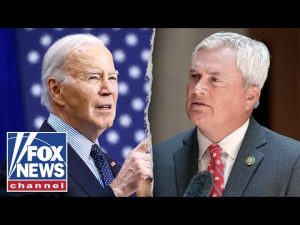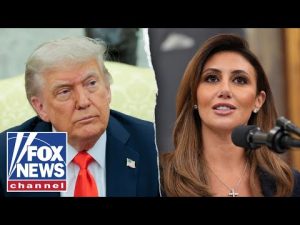In a recent discussion, a committee chairman raised eyebrows regarding the Biden administration’s inner workings. What started as a simple examination of President Joe Biden’s memory turned into a full-blown inquiry into who, if anyone, was really calling the shots in the White House. The key character in this narrative is Ian Sams, a spokesperson for Biden, who recently testified under oath about his interactions with the president. Spoiler alert: it wasn’t as frequent as one might assume for a president and his spokesperson.
Sams claimed that he engaged in only two face-to-face meetings with Biden during his two-year stint in the White House. This revelation surprised many, especially given Sams’ previous assertions on national television, where he painted a picture of a president who was sharp, bright, and fully “on top of his game.” One has to wonder how much of that spirited defense came from a personal understanding of Biden versus rehearsed talking points. After all, it’s hard to speak confidently about someone when you’ve barely met them!
This testimony certainly adds fuel to the fire simmering around the Biden administration. Critics argue that it reflects deeper issues within the White House structure and raises questions about Biden’s capacity to manage the presidency. If a primary spokesperson had so few interactions with the president, who else might be operating in the shadows? The chairman suggested that the real decision-makers in the Biden administration appear to be a tight-knit group, far removed from the president himself. Could this mean that Biden wasn’t the one pulling the strings all along?
The conversation also touched on bygone assessments of Biden’s mental acuity. Previous investigations by Robert Hur revealed that he experienced more meaningful discussions with Biden than Sams did; quite telling, considering that Sams had been his spokesperson. This reversal of expectations illustrates just how disconnected reality can be from media portrayals. Close encounters with the president are crucial for anyone defending him publicly, and missing those opportunities raises serious questions about the narrative spun by his administration.
As the investigation unfolds, it is clear that accountability will be sought in various ways, particularly regarding actions taken by Biden and his staff. The questions lingering in the air are whether justice will be served and if pardons issued at the end of Biden’s tenure might come undone as a result of this scrutiny. With so much riding on these hearings, Americans are undoubtedly watching closely, wondering who will step up to take responsibility and what changes may arise from these revelations.
In the grand scheme of political theater, this particular act could shape the landscape leading up to future elections. As light shines on the happenings in the Oval Office, citizens can only hope for transparency and accountability. After all, a healthy democracy thrives on informed citizens, and if there’s anything more engaging than political drama, it’s the people’s right to understand the truth behind their leaders.







